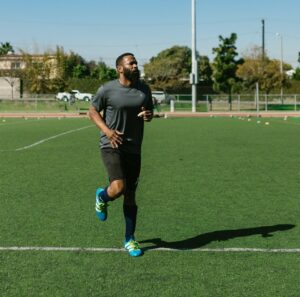Let’s talk about Overtraining

Whether its training for a state or national squad, or trying to put in your best for the local footy or netball team, athletes are consistently pushing their limits to improve performance. I have seen people training day in and day out to strive towards their goals and smash them out of the park. The human body has an amazing ability to adapt and requires an increase in training load in order facilitate these adaptations and improve performance. However, what if I told you repetitive, high intensity training without adequate recovery can be detrimental to your performance. Well then… how much is too much? First, we need to look at some key terms.
Overreaching is a term used when someone has been training at a high intensity for a number of consecutive days without adequate rest. This can lead to consistent muscle soreness, fatigue and loss of performance. However, with adequate rest the effects of overreaching can be reversed and additionally be utilised to improve performance.
Overtraining is when someone ignores the signs of overreaching and continues to train. This decrease in performance can often lead people to think they need to train harder to progress, however this would be counterproductive. Unlike overreaching, overtraining can take weeks to months of complete rest to fully recover from.

What are the symptoms and warning signs of overtraining:
- Feeling burnt out
- Unusual persistent muscle soreness following training
- Inability to train or compete at previous levels
- Performance plateaus
- Poor sleep patterns
- Prolonged fatigue
- Consistent injuries
What can I do to prevent the risk of overtraining?
Rest: It is paramount to program adequate rest into your week. Rest is crucial for the adaptive process to happen which leads to improving performance.
Nutrition: We need to fuel the body! We need to make sure we are getting enough energy and nutrients in the body to facilitate recovery.
Drink plenty of water: It is essential to stay hydrated as dehydration can contribute to muscle fatigue.
Assess training load: More is not always better. When it comes to training load, every individual can be different and it is important to factor in training intensity and recovery throughout the weeks.

So… how much is too much?
If you are experiencing the signs and symptoms mentioned above you may be overtraining and putting your performance and progress at risk. It is important to listen to your body and take the right steps to ensure adequate rest and recovery. If you are an athlete, amateur or professional, and feel you may be at risk of overtraining, someone like myself can help you set up a plan to safely improve upon performance and help you strive towards those goals.
‘Overtraining is wasted training‘ – Grete Waitz
Author: Tate Marino, Accredited Exercise Physiologist




